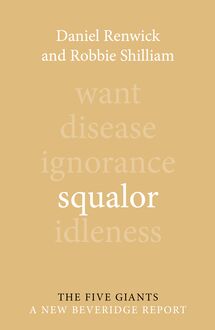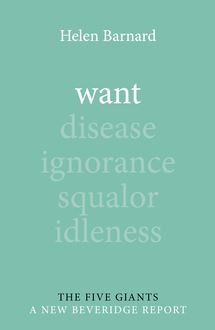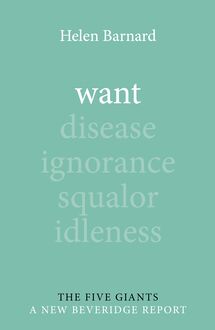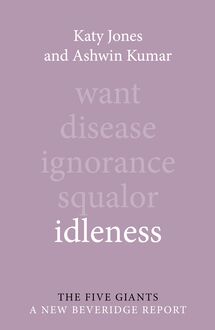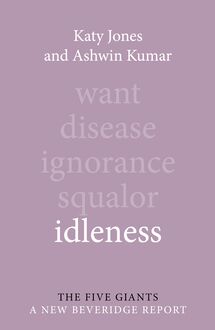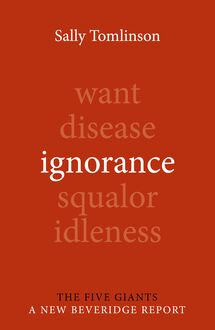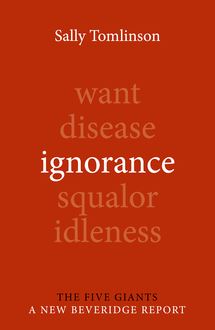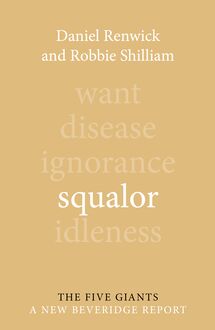-
 Univers
Univers
-
 Ebooks
Ebooks
-
 Livres audio
Livres audio
-
 Presse
Presse
-
 Podcasts
Podcasts
-
 BD
BD
-
 Documents
Documents
-
- Cours
- Révisions
- Ressources pédagogiques
- Sciences de l’éducation
- Manuels scolaires
- Langues
- Travaux de classe
- Annales de BEP
- Etudes supérieures
- Maternelle et primaire
- Fiches de lecture
- Orientation scolaire
- Méthodologie
- Corrigés de devoir
- Annales d’examens et concours
- Annales du bac
- Annales du brevet
- Rapports de stage
La lecture à portée de main
Vous pourrez modifier la taille du texte de cet ouvrage
Découvre YouScribe en t'inscrivant gratuitement
Je m'inscrisDécouvre YouScribe en t'inscrivant gratuitement
Je m'inscrisEn savoir plus
Vous pourrez modifier la taille du texte de cet ouvrage
En savoir plus

Description
As a universal experience school provokes strongly-held opinions. The views of teachers, parents, pupils compete with those of educational theorists, social engineers and ideologues. Although undoubtedly much improved since the time of Beveridge, the provision of education remains beset with challenges. Sally Tomlinson’s engaging, and at times personal, journey through Britain’s postwar experience of schooling and education reform draws on her many years of working in the sector. She explains how legacies of different systems and countless policy initiatives have led to the persistence of social inequalities, entrenching them in society and perpetuated by the power dynamics that they create between class, race and gender. Furthermore, she shows how the increasing mania for testing, targets, choice and competition, which has made schools into a marketplace and young people into consumers, threatens to undermine schools as a place where citizens can share learning and the democratic values that are needed as much today as they were in Beveridge’s time.
1. Introduction: ignorance evolves
2. Breaking out of ignorance, 1945–80
3. Market forces and ignorance in the 1980s
4. Redistributing ignorance in the 1990s
5. Bog standard schools and academies, 2000–09
6. Weirdos and misfits, 2010–20
7. Ignorance in Covid/post-Covid schooling, 2020–21
8. Conclusion
Sujets
Informations
| Publié par | Agenda Publishing |
| Date de parution | 20 octobre 2022 |
| Nombre de lectures | 0 |
| EAN13 | 9781788213967 |
| Langue | English |
| Poids de l'ouvrage | 1 Mo |
Informations légales : prix de location à la page 0,1250€. Cette information est donnée uniquement à titre indicatif conformément à la législation en vigueur.
Extrait
IGNORANCE
“The provision of maintained – ‘state’ – education has improved dramatically since the 1942 Beveridge Report. But it remains a policy landscape riven with strong opinion, prejudice and ideology. Some of those nostrums seem to stem from the personal but universal experience of school (and can consequently manifest sweet or sour nostalgia), some of them indicate a complete absence of reality or recognition of changing needs, some are really useful. The competing views of educational theorists, teachers, parents, along with the wider societal and political concerns (or lack of them) about meaningful quality, equity or equality of opportunity are difficult to navigate. It’s perhaps no surprise, therefore, that successive governments, despite countless Education Acts, have yet to slay and banish the Giant of Ignorance. Sally Tomlinson is a passionate defender and upholder of educational and teaching standards and her journey through Britain’s chequered postwar history of education provision draws on her long, broad and unrivalled experience of the sector. She throws into stark relief the challenges which teachers continue to face as they are confronted by the giddying sets of policy initiatives and frameworks. Too often, the ‘changers’ deny the resources necessary to implement the changes. Even more frequently, they put what should be diagnostic tools of testing, targets and reporting in place of infant and adolescent well-being and motivation as well as the learning and application of knowledge and experience. ‘Knowledge is power’ we are told, but regrettably, ignorance is not without influence either. That’s why Professor Tomlinson’s assault on the Giant should be made mandatory reading for all policymakers who truly want to topple the tyrant.”
LORD KINNOCK, former Leader of the Labour Party
“This book, by our internationally leading sociologist of educational diversity, could not be more timely. The urgent need for radical educational reform to prevent the widespread return of ignorance is clearly stated in this admirable book.”
STEWART RANSON, Emeritus Professor of Education, University of Warwick
FIVE GIANTS: A NEW BEVERIDGE REPORT
Consultant editor: Danny Dorling, University of Oxford
In November 1942, William Beveridge published Social Insurance and Allied Services , the result of a survey work commissioned the year before by the wartime coalition government. In what soon became known as simply “The Beveridge Report”, five impediments to social progress were identified: the giants of Want, Disease, Squalor, Ignorance and Idleness. Tackling these giants was to be at the heart of postwar reconstruction. The welfare state, including national insurance, child allowances and the National Health Service, was a direct result of Beveridge’s recommendations.
To mark the eightieth anniversary of the Report’s publication, the authors in this series consider the progress made against Beveridge’s giants, and whether they have diminished or risen up to again stalk the land. They also reflect on how the fight against poverty, unfit housing, ill-health, unemployment and poor education could be renewed as the countries of the UK emerge from a series of deeply damaging, divisive and impoverishing crises.
As an establishment figure, a Liberal and a eugenicist, Beveridge was an unlikely coordinator of the radical changes that improved so many peoples’ lives. However, the banking crisis at the end of the 1920s, the mass unemployment and impoverishment of the 1930s, and the economic shock of the Second World War changed what was possible to what became essential. Old certainties were swept aside as much from within the existing order as from outside it.
The books explore the topic without constraint and the results are informative, entertaining and concerning. They aim to ignite a broader debate about the future of our society and encourage the vision and aspiration that previous generations held for us.
Want by Helen Barnard
Disease by Frances Darlington-Pollock
Squalor by Daniel Renwick and Robbie Shilliam
Ignorance by Sally Tomlinson
Idleness by Katy Jones and Ashwin Kumar
To my cousins Genifer and John Riley who both worked postwar for the Labour government to create a socially just welfare state.
© Sally Tomlinson 2022
This book is copyright under the Berne Convention. No reproduction without permission. All rights reserved.
First published in 2022 by Agenda Publishing
Agenda Publishing Limited The Core Bath Lane Newcastle Helix Newcastle upon Tyne NE4 5TF
www.agendapub.com
ISBN 978-1-78821-394-3 ISBN 978-1-78821-395-0 (ePDF) ISBN 978-1-78821-396-7 (ePUB)
British Library Cataloguing-in-Publication Data
A catalogue record for this book is available from the British Library
Typeset in Nocturne by Patty Rennie
Printed and bound in the UK by CPI Group (UK) Ltd, Croydon, CR0 4YY
Contents
Preface
1. Introduction: ignorance evolves
2. Breaking out of ignorance, 1945–80
3. Market forces and ignorance in the 1980s
4. Redistributing ignorance in the 1990s
5. Bog-standard schools and academies, 2000–10
6. Weirdos and misfits, 2010–20
7. Ignorance in Covid/post-Covid schooling, 2020–21
8. Conclusion
References
Index
Preface
This book was suggested to me by Alison Howson at Agenda Publishing, who had the excellent idea of asking five people to consider how far William Beveridge’s assertion that five giants needed to be overcome in postwar Britain had actually happened and whether these giants had now been banished. These were Want (poverty), Disease (health), Idleness (unemployment), Squalor (housing) and Ignorance (education). I have lived through the post-Beveridge changing and expanding school system, and then worked “in education” at various levels and together with many valued colleagues and friends have researched and written about the education system in Britain and other countries. Together with many others I am sad that the education system in England, which slowly and with errors was beginning to serve all children and young people and help develop some measure of social and racial justice in our society, has been turned into a competitive, semi-privatized, profit-seeking and unjust system. Ronald Reagan, the former US president, had much admiring right-wing press coverage for his claim that “the most terrifying nine words in the English language are ‘I’m from the government and I’m here to help’”. In my view the five most terrifying words over the past 40 years have been “Ronald Reagan and Margaret Thatcher”, as they were the principal architects of what became “neoliberalism”, a free-market ideology which has dominated much of the world since the 1980s and produced, in England especially, pointlessly competitive and corrupted schooling. Other postwar European countries managed to banish much ignorance in their populations through more equitable and just education, and without the often vicious denigration of a state-maintained system and its teachers, which is still in full flow in this country. It has become more difficult to find out what is actually happening in many of our schools, as they have been turned into business-oriented institutions with all the claims for confidentiality that characterize businesses. Research that might be critical of policy and practice is discouraged and much research funded by government avoids searching questions. Current claims that governments are interested in “what works” in schooling avoid the question “works for whom?”
Some intrepid writers, along with committed journalists, have managed to study and write from critical perspectives, and a number of books, articles and blogs now question what is going on. Stephen J. Ball has been a careful analyst and critic of the education system, charting a path through the welter of education policy, Acts, initiatives and guidance which have turned children and parents into competitive consumers of centrally controlled learning (see Ball 2021). Pat Thompson’s School Scandals: Blowing the Whistle on the Corruption of Our Education System (2020) exposes some of the corruption, greed and cronyism in England’s neoliberal education system and Terry Edwards and Carl Parsons’ How to Dismantle the English State Education System in 10 Easy Steps pulls no punches in describing a “miasmic sewer of government social policy which disregards social responsibility while making rich friends richer” (2020: 1). Nigel Gann in The Great Education Robbery (2021) used the experience of the forced academization of one school to show the ethically indefensible and near criminal behaviour involved as the academy model of schooling was pushed. Warwick Mansell, an author and journalist, along with journalists from Schools Week have worked tirelessly to take our understanding beyond the policies and projects that sustain our unfair and unjust system, as has Melissa Benn, a journalist and campaigner for an equitable school system (Benn 2018). Ruth Lupton and Debra Hayes have shown that Great Mistakes in Education Policy (2021) are made in other countries embracing competitive and unjust neoliberal policies.
This book goes over familiar ground, commenting on the education system in the decades between 1945 and 2021, when the consequences of a global pandemic have made an unjust, inequitable class-based education system worse and increased many kinds of ignorance. I have started each chapter with some information on what I was doing during those decades, starting with my own disappointment as a four year old that I could not start school that early. There have been many advances in education over the years, especially up to the 1970s, but the determination of many politicians and policy-makers to retain a class-based system, extolling “academic” schooling and denigrating the “vocational”, and allowing the obscene levels of child poverty that now characterizes our post-pandemic society, is disgraceful in a suppo
-
 Univers
Univers
-
 Ebooks
Ebooks
-
 Livres audio
Livres audio
-
 Presse
Presse
-
 Podcasts
Podcasts
-
 BD
BD
-
 Documents
Documents
-
Jeunesse
-
Littérature
-
Ressources professionnelles
-
Santé et bien-être
-
Savoirs
-
Education
-
Loisirs et hobbies
-
Art, musique et cinéma
-
Actualité et débat de société
-
Jeunesse
-
Littérature
-
Ressources professionnelles
-
Santé et bien-être
-
Savoirs
-
Education
-
Loisirs et hobbies
-
Art, musique et cinéma
-
Actualité et débat de société
-
Actualités
-
Lifestyle
-
Presse jeunesse
-
Presse professionnelle
-
Pratique
-
Presse sportive
-
Presse internationale
-
Culture & Médias
-
Action et Aventures
-
Science-fiction et Fantasy
-
Société
-
Jeunesse
-
Littérature
-
Ressources professionnelles
-
Santé et bien-être
-
Savoirs
-
Education
-
Loisirs et hobbies
-
Art, musique et cinéma
-
Actualité et débat de société
- Cours
- Révisions
- Ressources pédagogiques
- Sciences de l’éducation
- Manuels scolaires
- Langues
- Travaux de classe
- Annales de BEP
- Etudes supérieures
- Maternelle et primaire
- Fiches de lecture
- Orientation scolaire
- Méthodologie
- Corrigés de devoir
- Annales d’examens et concours
- Annales du bac
- Annales du brevet
- Rapports de stage

